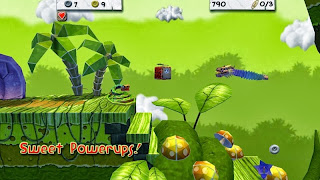NFL is one of the most popular league sports not only in the United States but in the world as well. Enjoyed by millions and played by thousands, it is the highest level of professional football worldwide. Though there are many ways to keep up with the latest happenings in the NFL world, many people don't have enough time to follow their favorite sport. That's where the following Android apps will come in handy:
NFL Mobile
This is the official NFL app. Once installed, you'll have at your fingertips all the latest happenings in the NFL world. Be it breaking news, videos, highlights, and even live game scores, this app has it all. One of the main features of the app is scoring. The app shows up-to-date scores of the latest happenings in the NFL world. Also, you can set up the app so that you'll get alerts when your team plays a match or even if it enters the red zone.
Other features in this application include video highlights, fantasy football, and NFL.com webcasts. There is also an option to buy a premium subscription. This basically allows you to access more features like live streaming of NFL games, live game audio, live webcasts and more.
If you are always on the move but don't have time to catch the last game's highlights, this app is perfect for you. NFL by Statsheet brings previews, recaps, live scores, and even game analysis right on your Android smartphone. The app boasts of a database of over two billion statistics that are used to bring the latest of NFL to your device. Despite being free, the app has almost all the features you'd need from a complete NFL application. It has live play-by-play scores, which are dynamically updated, every team's full schedule, regularly updated standings and so much more. Definitely worth installing if you want to stay abreast with the latest in the NFL world.
NFL Pro 2013
Though we all love to keep up with the latest news, sometimes, we just want to take some time off and enjoy ourselves. That's where mobile games come in handy. We have already covered a lot of Android-based games on our site before; however, for die-hard NFL fanboys and fangirls, those titles aren't enough to whet their appetites. NFL Pro 2013 is a game developed by Gameloft that puts you right on the field anywhere anytime. Officially licensed by NFL, this game has realistic graphics, solid gameplay, and a superb management system that makes you feel as if you are on the field.
This application is strictly for hardcore NFL fans only. If you are a complete NFL addict who loves bashing on other teams, this app is something you might have been looking for for years. The way NFL Trash Talk works is simple. Once a game starts, you get to chat with supporters of your rival team. Either you can engage in a very nice friendly banter (which you won't), or you can choose to trash talk them till they give up and stop talking. This is a very fun app to try especially if you are completely married to the game.
Featuring all 32 licensed NFL teams, NFL Kicker 13 is an app that challenges you to accurately kick the ball like a pro NFL player. With nicely designed graphics and officially licensed equipment, this game doesn't have a steep learning curve. Once installed, you'll be addicted to the game in no time. Having said that, NFL Kicker is a title that is not that easy to master. As the game progresses, the difficulty level starts going up and up making the game both fun and challenging at the same time. It is definitely worth a try whether you are a NFL junkie or not.














